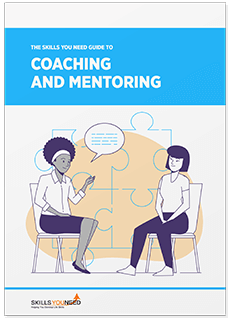Important Skills You Need
to Become a Skilled Therapist
See also: Understanding Others
Therapists are tasked with the important job of helping their clients with their mental health. They help them work through problems, come to terms with their traumas or life tragedies, and assist them as they work toward becoming happier, healthier versions of themselves.
However, even the most skilled therapists sometimes question whether they have all the necessary skills to help their clients to the best of their abilities. Whether you’re a therapist in training, an experienced therapist, or someone thinking about getting involved in mental health services, it can be necessary to prioritize the following skills:

Problem-Solving
Ask some of the most experienced Cigna therapists NYC that residents see and they’ll likely tell you that problem-solving is one of the most crucial skills for therapists around the world to have.
Therapists with exceptional problem-solving skills can identify their clients’ issues and suggest solutions through tools, coping mechanisms, and treatment plans. If you don’t believe you have the most appropriate problem-solving skills to help your clients get what they need from your sessions, you can fine-tune them in many ways.
Build up your brain muscle with logic games and puzzles, keep an idea journal with you at all times to view problems objectively, and visualize them with mind maps. When you develop new problem-solving skills with your own issues, you can use them to benefit your clients.
Communication
Therapists are a listening ear for the clients, but they must also be excellent communicators to convey many important messages and types of advice to help their clients. They must also know when to listen, when to enter a discussion with advice, and how to tell the difference between a client venting and asking for advice.
The communication skills of a therapist typically must be far more refined than the average business owner, manager, or employee. Start researching new assertive communication methods you might be able to practice in your personal life before applying them to your therapy practice. Using good posture, maintaining eye contact, controlling the tone of your voice, and avoiding ambiguity in your statements are excellent places to start.
Empathy
Empathy describes having the capacity to understand or feel what someone else is experiencing based on how they’ve described it. Essentially, you’re able to put yourself in that person’s shoes and learn how happy, sad, excited, or upset you would be in the same situation.
Empathy as a therapist is important because you must be able to understand how your client is feeling, even if you’ve never experienced what they have. When you can feel empathy, you’re generally in a strong position to help them work through their emotions and develop effective strategies to guide them through particularly challenging periods in their lives.
While many therapists were already empathetic people before becoming qualified in their field, it can be a learned skill if you don’t believe you’re compassionate enough to reach your full potential.
Start by looking for new experiences and seeking out different perspectives. Put yourself in someone else’s shoes by volunteering at charitable organizations or having open and honest conversations with people from different walks of life. You might also make significant progress by acknowledging any biases or false perceptions you might have about other people. Once you identify your biases, you can make a conscientious effort to move past them.
Reflection
What you interpret from a conversation with a therapy client isn’t necessarily the message they’re trying to convey. As a result, reflection can be a valuable skill to have for making sure you understand what your client is talking about so you can provide the most appropriate support. Most therapists learn to use reflection when training to enter the field, but you can brush up your skills on the job. At a minimum, you should try to:
- Reflect a version of what a client has told you to make sure you understand it correctly
- Focus on the main points of what they’ve said
- Avoid interrupting a client to reflect on what they’ve said unless you’re trying to clarify a point
- Use reflections to encourage further communication while avoiding interrupting the flow of conversation
Flexibility and Versatility
While you might learn a specific set of skills while training to become a therapist, you’ll quickly learn that there is no one-size-fits-all approach to therapy. Every client’s needs are different, and the techniques you find helpful with one client might be entirely ineffective with another.
As a result, flexibility and versatility can be crucial. You must be able to identify which tools and techniques your clients can benefit from based on their personalities, needs, and specific situations.
Flexibility with your time can also be necessary. Not all clients will require your services during the average nine-to-five working week. You might be required to attend to a client in need outside of your regular hours, even if it means cutting into your personal time.
Boundaries
Setting healthy client-therapist boundaries is crucial from the moment you take on your first client. Establishing boundaries is important not only for your protection on a personal level but also on a professional level to ensure you’re operating legally and ethically. The American Psychological Association recommends establishing clear boundaries for the following areas to ensure a healthy therapeutic relationship with all clients from the beginning:
- Self-disclosure
- Communication channels
- Session location
- Session length
- Physical touch
- Gift exchange
- Payment structure and fees
- Outside contact
Business Management
Alongside having a wide range of skills to help your clients, you must also have business management skills for yourself if you’re running a private practice. While your primary purpose might be to help people, you must also make wise business choices to ensure your business is financially viable.
At a minimum, you’ll need to have tax knowledge and understand how to forecast cash flow and monitor profit and loss. Don’t be afraid to enlist the services of an accountant when you’re unsure of your financial obligations.
Therapists continually learn and grow to provide their clients with the help they need during significant life challenges. If you’re ready to take your career to a new level to benefit your clients, you might like to start by fine-tuning these skills above.
Further Reading from Skills You Need
The Skills You Need Guide to Coaching and Mentoring
Coaching and mentoring require some very specific skills, particularly focused on facilitating and enabling others, and building good relationships. This eBook is designed to help you to develop those skills, and become a successful coach or mentor.
This guide is chiefly aimed at those new to coaching, and who will be coaching as part of their work. However, it also contains information and ideas that may be useful to more established coaches, especially those looking to develop their thinking further, and move towards growing maturity in their coaching.


